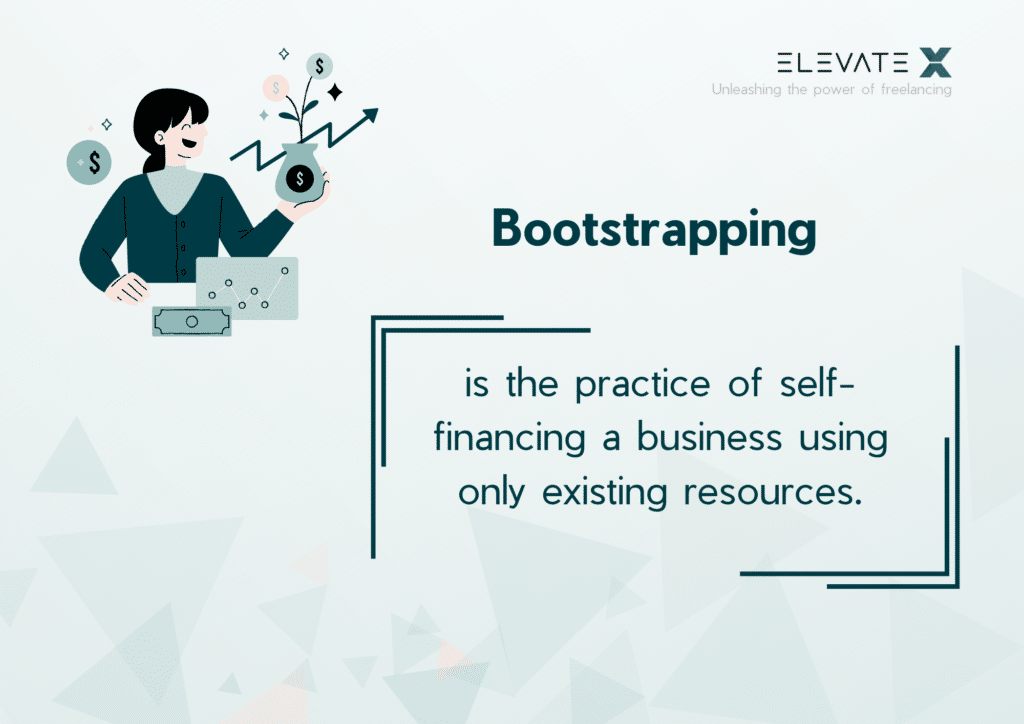Many successful companies have been founded by engineers who built their businesses without external funding. These “bootstrapped” companies offer valuable insights and strategies that can be helpful for other entrepreneurs. In this article, we will explore the key lessons that can be learned from such companies.
Introduction
Bootstrapping in a business context means building a company using personal funds and without external financing. This approach is particularly attractive to many engineers because it allows for maximum control and independence. Without being dependent on investors, they can make their own decisions, creating the freedom to develop creative and innovative solutions.
For engineers, bootstrapping often also means greater challenges and responsibilities. It requires financial discipline, entrepreneurial foresight, and immense resilience. However, the benefits are clear: full ownership and the pride of building a company from the ground up.
Independence and ownership are central to bootstrapping. This allows the founder to maintain full control over the strategic direction and quickly respond to market changes without having to consider external financiers. This approach fosters creative problem-solving and ensures that the company remains agile and flexible. For engineers, who are accustomed to thinking systematically and analytically, this method often fits perfectly.
KEY POINTS
- Bootstrapping allows engineers maximum control and independence in building their companies.
- Engineers leverage their technical skills and problem-solving abilities to develop innovative products even with limited resources.
- Networking and community-building are crucial for the long-term success of bootstrapped companies.
- Financial discipline and resource optimization are key elements in bootstrapping.
The Strengths of Bootstrapped Companies
Engineers are natural problem-solvers and often technologically savvy, making them ideal candidates for bootstrapping. Their ability to analyze complex problems and develop systematic solutions enables them to create innovative products and services even with limited resources. The technical know-how they bring allows them to take on many tasks themselves that would otherwise need to be outsourced at high costs.
Examples of Successful Engineer-Founded Companies
A good example is the story of Atlassian, a software company founded by Australian engineers Mike Cannon-Brookes and Scott Farquhar. Atlassian started without external investment and still grew into a billion-dollar company. The founders used their technical knowledge and product development skills to build a strong product that spread through word of mouth and organic growth.
Another example is MailChimp, founded by Ben Chestnut and Dan Kurzius. Both founders, with backgrounds in web design and development, developed the email marketing platform out of their own pockets. Without external funding, they managed to create a product that precisely met the needs of their target audience. Today, MailChimp is one of the leading platforms in its field and was completely bootstrapped.
Financial Discipline and Resource Optimization
Engineers bootstrapping a company must deal with strict financial management. This level of financial discipline is essential to keep the business running. Without external financing, resources are scarce, and every dollar must be used strategically to make the most of it. Engineers are used to working logically and efficiently, which helps them successfully overcome this challenge.
Optimizing available resources is another important aspect. Engineers often rely on clever, cost-effective solutions to achieve their goals. This might mean developing technologies themselves or using existing tools and software in new, innovative ways. Their deep understanding of technology allows them to automate or simplify processes, saving both time and money.
A crucial step in this direction is prioritizing product development. Engineers focus on creating MVPs (Minimal Viable Products) that deliver maximum impact with minimal effort. This means developing only the features and functions that are urgently needed and avoiding expensive or unnecessary extras. This ensures that the product quickly reaches the market and solves real customer problems before more resources are invested.
A well-known example of this is Basecamp, a company founded by Jason Fried and David Heinemeier Hansson. Without significant capital, they focused on simple yet effective project management software that concentrated on essential functions. This approach helped them quickly build a broad user base and continue to grow without significant external financing.
This mix of financial discipline and resource optimization is central to engineer-founded, bootstrapped companies. Engineers use their natural inclination for efficiency and problem-solving to lead their companies to success even with limited resources.

Focus on Product: Quality and Innovation
Engineers place great value on product quality, knowing that a solid and well-designed product is key to long-term success. For them, quality means not only that the product works but also that it is efficient, user-friendly, and reliable. This focus on details and continuous improvement makes all the difference.
An example of a successful company that excels in product quality and innovation is the German software firm SAP. Founded by five former IBM engineers, they focused from the beginning on developing robust and powerful software solutions for businesses. Through constant iterations and customer feedback, they were able to continuously improve their products and adapt to the changing needs of the market.
The story of WhatsApp also shows the importance of focusing on the product. Founders Jan Koum and Brian Acton, both with technical backgrounds, developed the messaging app with the clear intention of making it fast, secure, and straightforward. This focus on core functions and continuous optimization led to WhatsApp quickly gaining a massive user base without adding unnecessary features that could detract from the user experience.
Innovation also plays a central role. Engineers are always looking for better, smarter solutions to existing problems. They are not afraid to explore and implement new technologies to improve their product. This enthusiasm for innovation not only leads to better products but also to higher customer satisfaction and a stronger competitive position.
The ability to prioritize quality and innovation in product development gives engineer-founded, bootstrapped companies a clear advantage. Through their willingness to tirelessly refine their products and explore new avenues, they have been able to reinvent themselves repeatedly and remain successful in the long term.
Are you searching a Freelancer?
Customer Focus and Direct Market Approach
Engineers bootstrapping a company know that a direct connection with customers is an invaluable advantage. Without the buffer of sales teams or marketing layers, they understand firsthand what their customers need and want. This close connection enables authentic and targeted product development. Customer feedback is not only collected but used in real-time to optimize and further develop products. This direct customer feedback helped Dyson, another engineer-founded company, continuously improve its vacuum cleaners and eventually establish itself as a market leader.
This approach not only enhances product quality but also builds a loyal customer base. Customers feel heard and appreciate the efforts to take their needs seriously. MailChimp, founded by Ben Chestnut and Dan Kurzius, also shows the importance of direct market engagement. By directly addressing the needs of small businesses and responding to them, they built a product that exactly met the requirements of their target audience and conquered the market.
By consistently involving customers in the development process, the product improves, and brand loyalty is strengthened. This leads to a win-win situation: satisfied customers and sustainable business success.
Long-Term Sustainability and Scalability
Engineers naturally have an eye for details and long-term planning. These skills play a central role in making a company sustainable and scalable. Instead of focusing on quick profits, they emphasize creating robust systems and processes that support continuous growth.
Sustainability
Sustainability for engineers means not only environmental protection but also the economic and social longevity of their company. A prime example is Patagonia, founded by Yvon Chouinard. Although he is not an engineer, his approach embodies the engineering mindset regarding sustainability. He maintains a business model based on ethical practices and high-quality product design, which builds trust and loyalty among customers in the long term.
Scalability
Scalability, on the other hand, requires engineers to design their systems and processes to keep up with the company’s growth. This often starts with product design, which is modular and adaptable. Slack, originally developed as an internal communication tool for a gaming company, became one of the leading tools for corporate communication worldwide through the clever application of technology and scalability.
Engineers consider the possibility of exponential growth from the beginning and build their infrastructure so that it can be expanded with minimal adjustments. By combining sustainability and scalability, they create companies that not only start successfully but also endure long-term and can respond to changes in the market. This strategy minimizes risks and maximizes the chances of successfully navigating through different growth phases without relying on external financing.
Challenges and Solutions: Learning from Mistakes
Bootstrapped companies face numerous challenges. Engineers cannot simply access a large budget and often have to find creative ways to overcome obstacles. These challenges range from limited financial resources to the need to motivate a team without the incentives of high salaries.
A well-known example is GitHub. The founders, mostly engineers, faced significant financial constraints. Nevertheless, they managed to develop a product that offered both innovative and practical solutions. Their approach involved quickly identifying and adapting to mistakes rather than rigidly sticking to a predetermined plan. This flexibility allowed them to use resources more efficiently and continuously improve their offering.
Tesla, led by Elon Musk, also faced many technical and financial difficulties in its early stages. The company was repeatedly on the brink of bankruptcy. But Musk, with his engineering background, found innovative ways to optimize production processes and reduce costs. By learning from earlier mistakes in the production process and continuously adapting, Tesla was eventually able to not only survive but also thrive.
By fostering a culture of open mistakes and viewing problems as learning opportunities, engineers have repeatedly found creative solutions. This mentality, based on continuous improvement, is a key point that sets bootstrapped companies apart from others. They learn quickly, adapt, and use their mistakes as a springboard for future innovations and successes.
Networking and Community Building
Engineers understand that networking and community building are crucial for a company’s success. Even though it may not be immediately obvious, a strong network can provide valuable resources and support that might not be achievable alone.
A strong network not only opens up opportunities for collaboration but also provides access to knowledge and experience that are essential for the company’s growth. For example, the founders of Dropbox, Drew Houston and Arash Ferdowsi, found significant mentors and partners through their network.
These relationships helped them make critical strategic decisions and elevate the company to the next level.
Partnerships often emerge from well-maintained networks. Slack, originally intended as a communication tool for an internal gaming project, benefited significantly from strategic partnerships with other technology companies.
These collaborations helped them expand their reach and enter new markets. Thus, a strong network can not only open doors but also pave the way for sustainable growth.
However, networking isn’t just about making business contacts. Building a community of like-minded individuals, customers, and even competitors can create a strong foundation for long-term success. Such a supportive community not only provides feedback and ideas but also strengthens trust and loyalty toward the company.
A stable network and an active community are the invisible engines behind many successful bootstrapped companies. These relationships, often based on mutual respect and trust, help overcome challenges and achieve new heights. When engineers recognize the importance of networking and community building and actively work on it, the possibilities are endless.
Conclusion
The experiences of bootstrapped companies founded by engineers impressively demonstrate that independence and ingenuity can be key to success. These companies prove that great achievements are possible even without external funding by relying on financial discipline, creative problem-solving, and deep customer focus.
One of the most important lessons is that engineers, through their technical expertise and analytical thinking, are particularly well-suited to making sound business decisions and developing innovative products. Their approach to challenges is systematic and data-driven, which is especially advantageous in the early stages of a company.
A key element is also the ability to learn from mistakes and continuously improve. This leads not only to better products but also to more robust business models. Networking and community building play an essential role in anchoring the company within the industry and forging valuable partnerships.
For future founders who wish to draw inspiration and follow similar paths, it is important to consider and apply the strategies and approaches mentioned. The journey of a bootstrapped company may be full of challenges, but the rewards are all the greater—not only financially but also in terms of personal and professional fulfillment.
If you want to start your own project, take these lessons to heart. Taking the path of least resistance may be tempting, but the journey of bootstrapping has its own unique value. Combined with engineering precision and perseverance, you too can achieve great things.
Bootstrapping refers to building a company using personal resources without relying on external funding, such as investors or loans. This approach is particularly attractive to engineers because it offers maximum control and independence. They can make their own decisions and develop creative solutions without being influenced by external financiers. This independence often fosters innovation and efficiency within the company.
Bootstrapping requires a high level of financial discipline and entrepreneurial foresight. Engineers who choose this path must optimize their resources and find cost-effective solutions to build a successful company. The challenge often lies in developing and launching a product without access to a large budget. At the same time, they must build a motivated team and achieve long-term market success.
Networking and community-building are crucial for the success of a bootstrapped company. A strong network can provide valuable resources and support that may not be achievable alone. Well-maintained networks often lead to partnerships that propel the company forward. Additionally, building a community of like-minded individuals, customers, and partners helps strengthen trust in the brand and establish a loyal customer base, which contributes to long-term business success.








